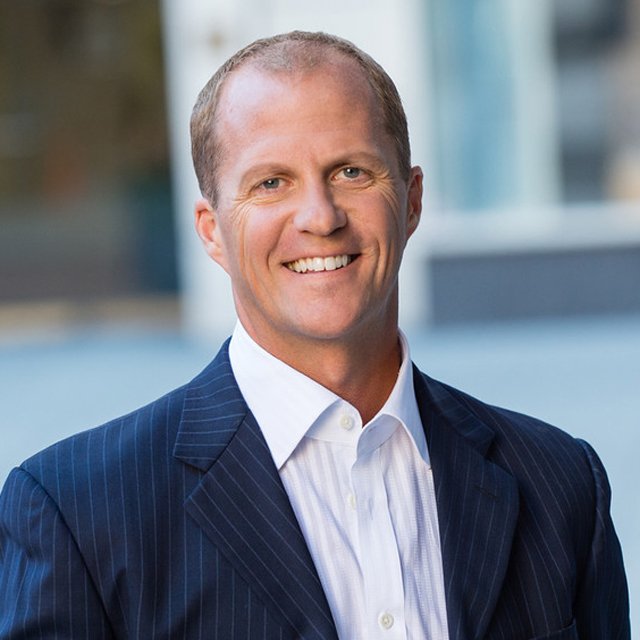Why Half of Mercer's 500 Advisors Are Women

Mercer Advisors is uncommon in an industry that “sorely struggles with diversity,” as CEO Dave Welling frames it. Indeed, about half of Mercer’s 500 advisors are women, he tells ThinkAdvisor in an interview.
In 2018, a year after he came on board, Welling launched a major recruiting push to expand the number of female financial advisors in the firm.
“It’s about standing up for the right thing” since “one might say that [financial advisors are] ‘pale, male and stale’ across the industry,” says Welling, 53.
That is, 82% of U.S. financial advisors are white, according to the Financial Planning Association.
Only 15% to 20% of advisors are women, Barron’s says. Women constitute 23% of certified financial planners, the CFP Board reports.
And the average age of a financial advisor is 55, a 2019 J.D. Power study showed. Twenty percent are 65 or older.
Mercer, with $40 billion in assets under management, is ranked eighth on Barron’s Top RIA list for 2021.
The firm, headquartered in Denver, with advisors and clients in every state, has been doubling in size about every three years, “depending on what the market does,” Welling says.
In the interview, he talks about plans for growth, both organic and via acquisitions.
“We like to think of ourselves as the Mayo Clinic of wealth management,” says Welling, who was earlier with Charles Schwab for 12 years. “We’re trying to set a similar standard of financial care.”
Genstar Capital and Oak Hill Capital, Mercer investors, are strategic advisors for the firm.
Launched in 1986 as a fee-only final planning company, Mercer had expanded to 18 offices operating as one firm by 2015. The following year, it stepped into the acquisition space and bought six practices.
In the interview, Welling discusses the biggest challenge for RIAs today, as well as the three absolute essentials for an advisor succession plan.
ThinkAdvisor recently held a phone interview with the CEO, who was speaking from Boulder, Colorado.
Though Mercer fits the industry definition of a “rollup,” Welling finds the word distasteful (“an investment banker term and too clinical,” he calls it).
He prefers to describe the firm as an “integrator” — that is, definitely “not an “aggregator.”
Still, the practices that Mercer acquires become employees, Welling says, and “more important, one brand that stands for one client experience that we’re holding out to the market and offering to clients.”
Here are highlights of our interview:
THINKADVISOR: If I said that acquiring women-owned businesses is your niche, would that insult you?
I would take issue with that. I think it’s an insult calling women a niche when they’re 50%-plus of the population.
Well, then, does acquiring women-owned financial practices differentiate your company?
I do think it’s a differentiator, for sure. We’re starkly different than the rest of the industry.
The last numbers I saw [showed] that total female advisors across the RIA industry were in the mid-20%s. We’re more than double that. Over 50% of our advising team are women; in 2017, when I joined the firm, it came to about 25% or 30%.
Why has gender diversity been so important to you?
It’s really about doing the right thing and standing up for the right thing in an industry that sorely struggles with diversity.
One might say it’s pale, male and stale across the industry.
What led you to specialize in acquiring women-owned firms?
When I joined the company, I saw many talented women that already were in the organization; but I felt they weren’t empowered and that their voices weren’t amplified enough.
So in 2018, we launched a formal recruiting initiative [for women] and established mentorship programs.
You were targeting women-led firms, then?
Perhaps they targeted us as a different kind of wealth management firm for women-led businesses looking for an organization to join that shared their values, principles and the diversity they [wanted] to see in the industry.
When you took over as CEO five years ago, AUM was about $9 billion. Now it’s about $40 billion. Do you attribute that increase to acquisitions or organic growth?
It’s about half and half. We have very strong organic growth of new clients; we bring on about $1 billion per quarter of new business.
Is your firm an aggregator?
We call ourselves an integrator. The [practices] become employees of Mercer and more importantly, one brand that stands for one client experience that we’re holding out to the market and offering to clients.
What’s your long-range vision for Mercer?
A big part of that is already in place. We like to think of ourselves as the Mayo Clinic of wealth management.
Mayo Clinic’s model stands out within medicine as the standard of health care. We’re trying to set a similar standard of financial care.
Is your firm a rollup?
I have a distaste for that word. Rollup is an investment banker term and too clinical. The industry also calls acquisitions “transactions” and “deals.”
[With us], these are relationships that were forming when the principals decided to put the future of their life’s work in our hands.
What’s Mercer’s backstory?




